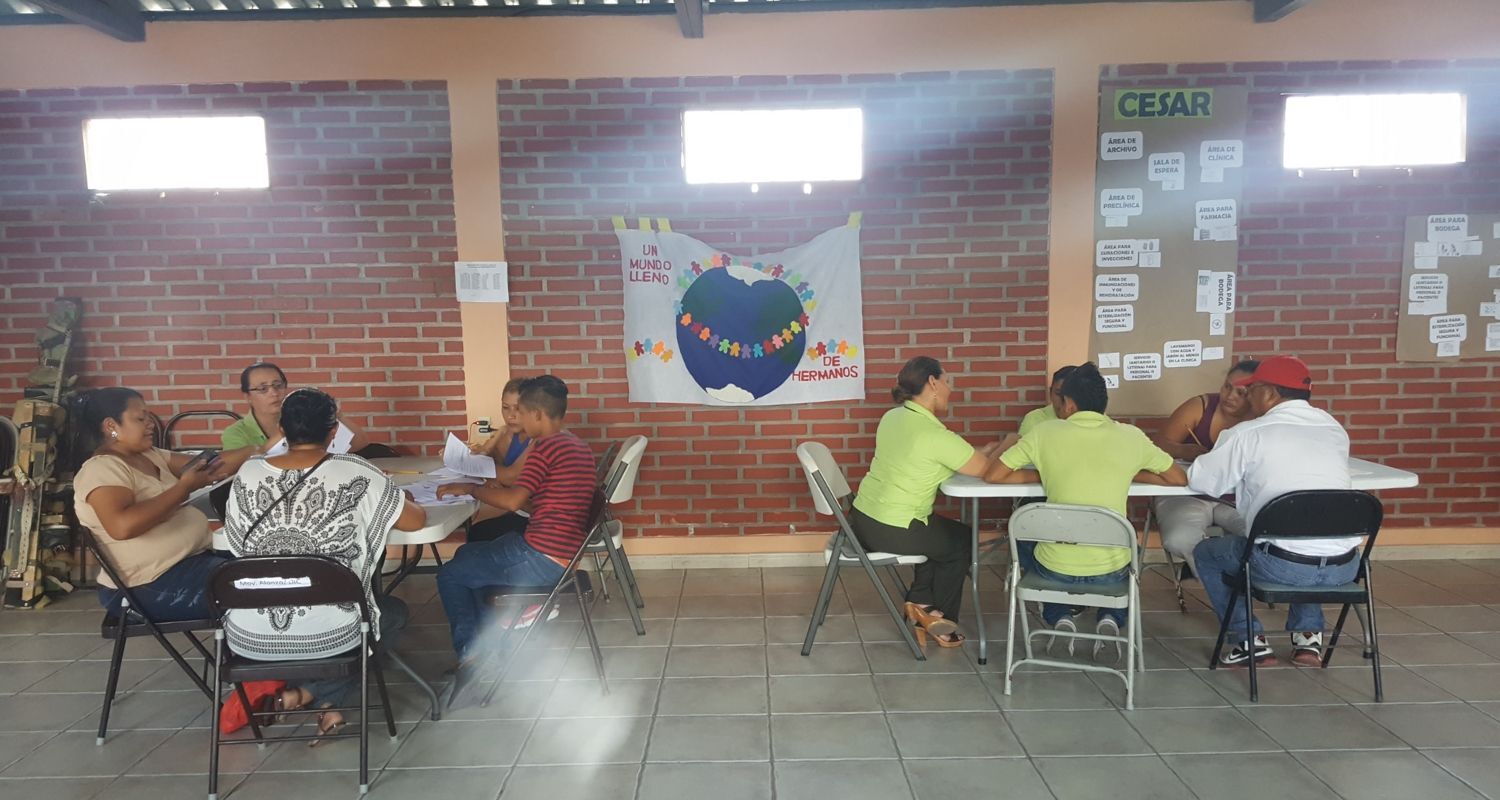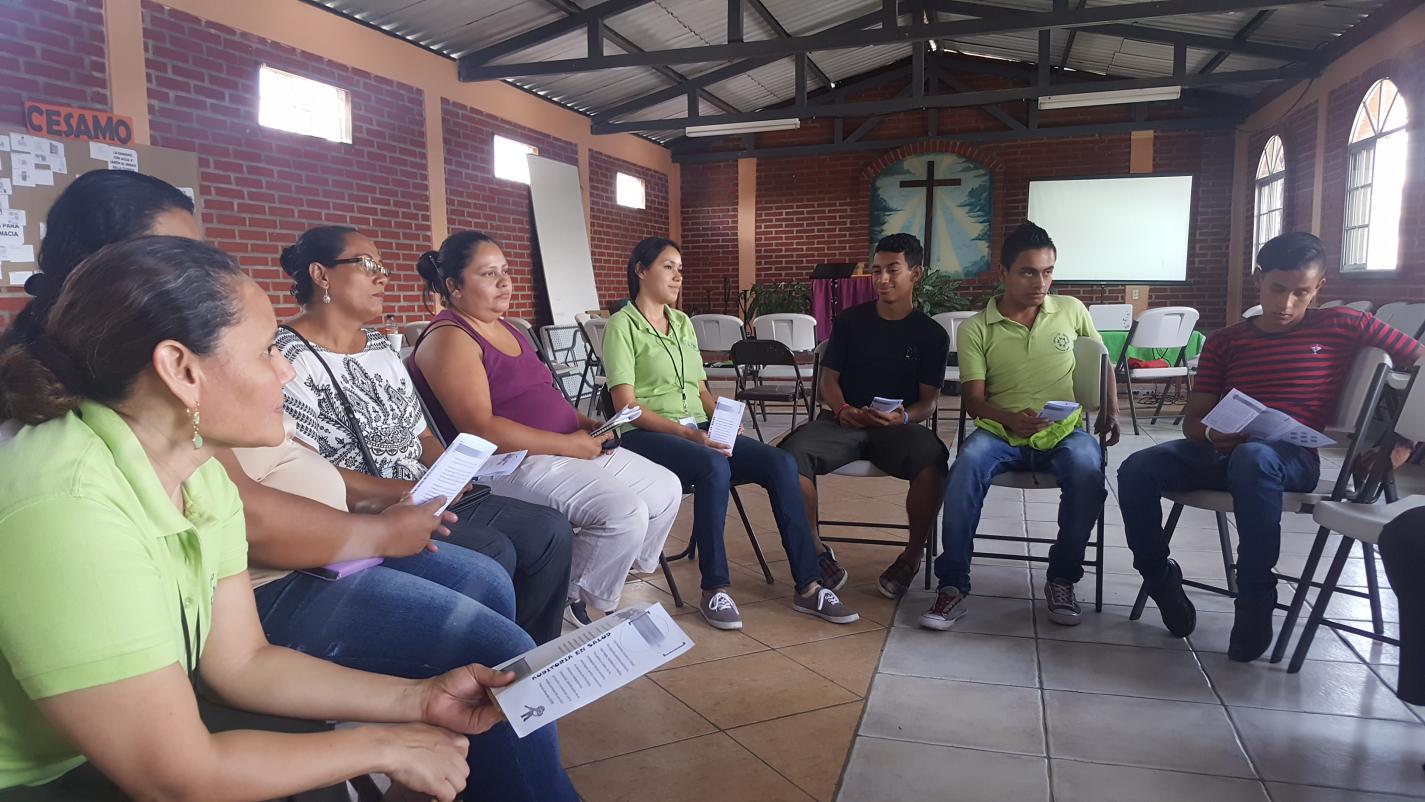ASJ works to reduce corruption in the public health sector in order to improve health care for Hondurans who most need it. Much of this work relies on volunteers, but this is the first time that two different teams within ASJ – those working with the Secretary of Health on transparency, and those working to strengthen communities – have come together to involve volunteers in improving the health centers in their own backyard.
August 23, 2016
A group of people sit with notepad and pencil ready in a small brick church, in a community that a few years ago was considered one of Tegucigalpa’s most dangerous.
ASJ (formerly known as AJS) has been working with this community for over three years, investing in youth clubs that give children alternatives to gang involvement, and assisting in the prosecution of homicide cases that occur within the community, earning guilty sentences that are helping to dramatically reduce violence.
Now, ASJ is starting a new project, involving community members in anti-corruption work by training them as auditors of their own community health center.
Through a half-day workshop, people who are already recognized as leaders in their communities are given the tools and training they need to document the performance of their local health centers and advocate for better health for themselves and their neighbors.
They learn what good health care should look like, including all the staff, tools, and services they should see in their health center. ASJ staff then teach participants how to compare the center to the national standard, and note any other observations or recommendations.
ASJ has already spoken to the health center, which has agreed to let the community leaders come in and audit their practices. After the audit, and a debriefing with ASJ’s health and anti-corruption experts, the community and the health center will work together to develop a plan for improvement.
By enlisting the active support of the community, says Blanca Munguía, the program’s coordinator, they can “change the culture” of public health to one of transparency and accountability.
“What you audit,” she told the community leaders, “You make better.”




















